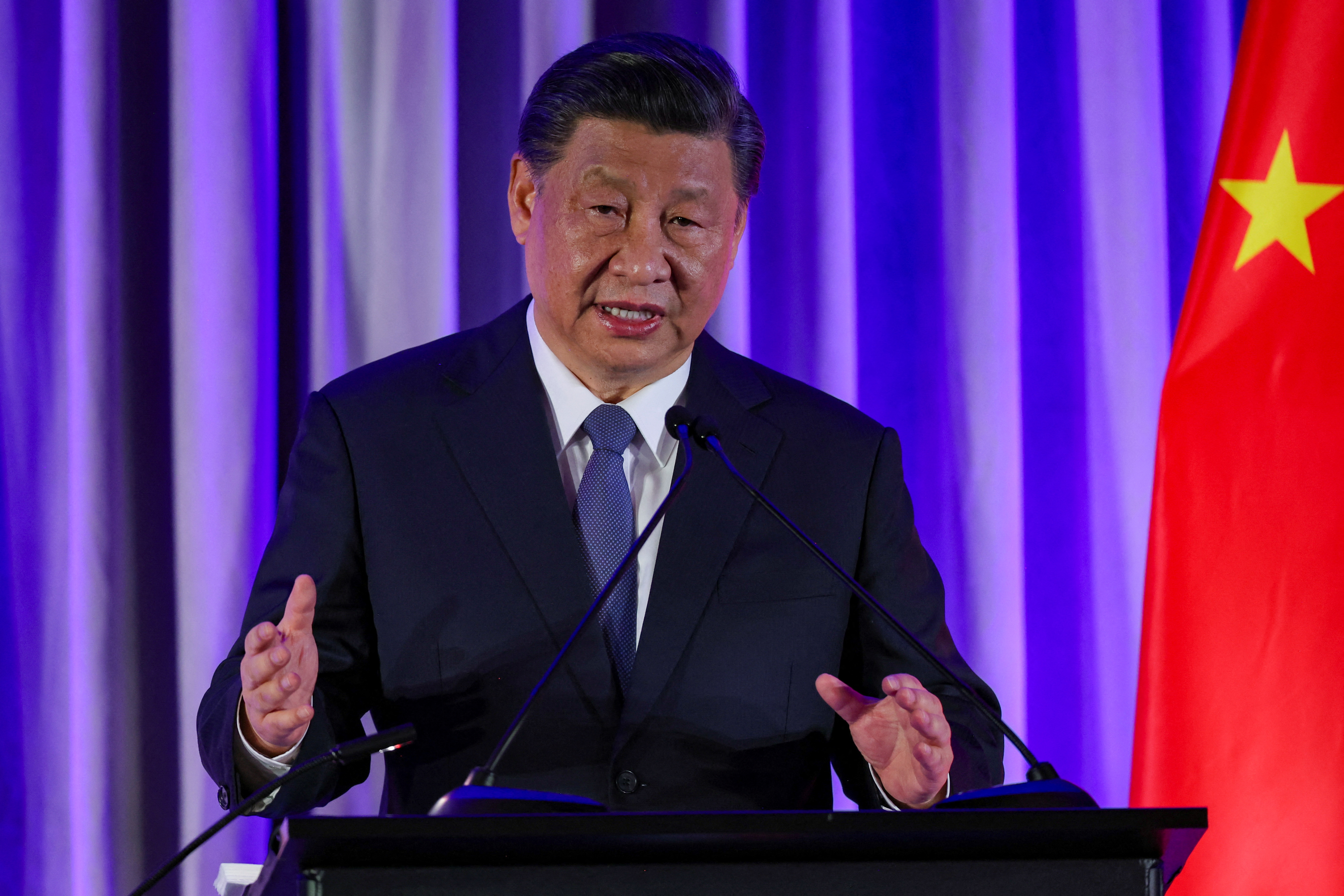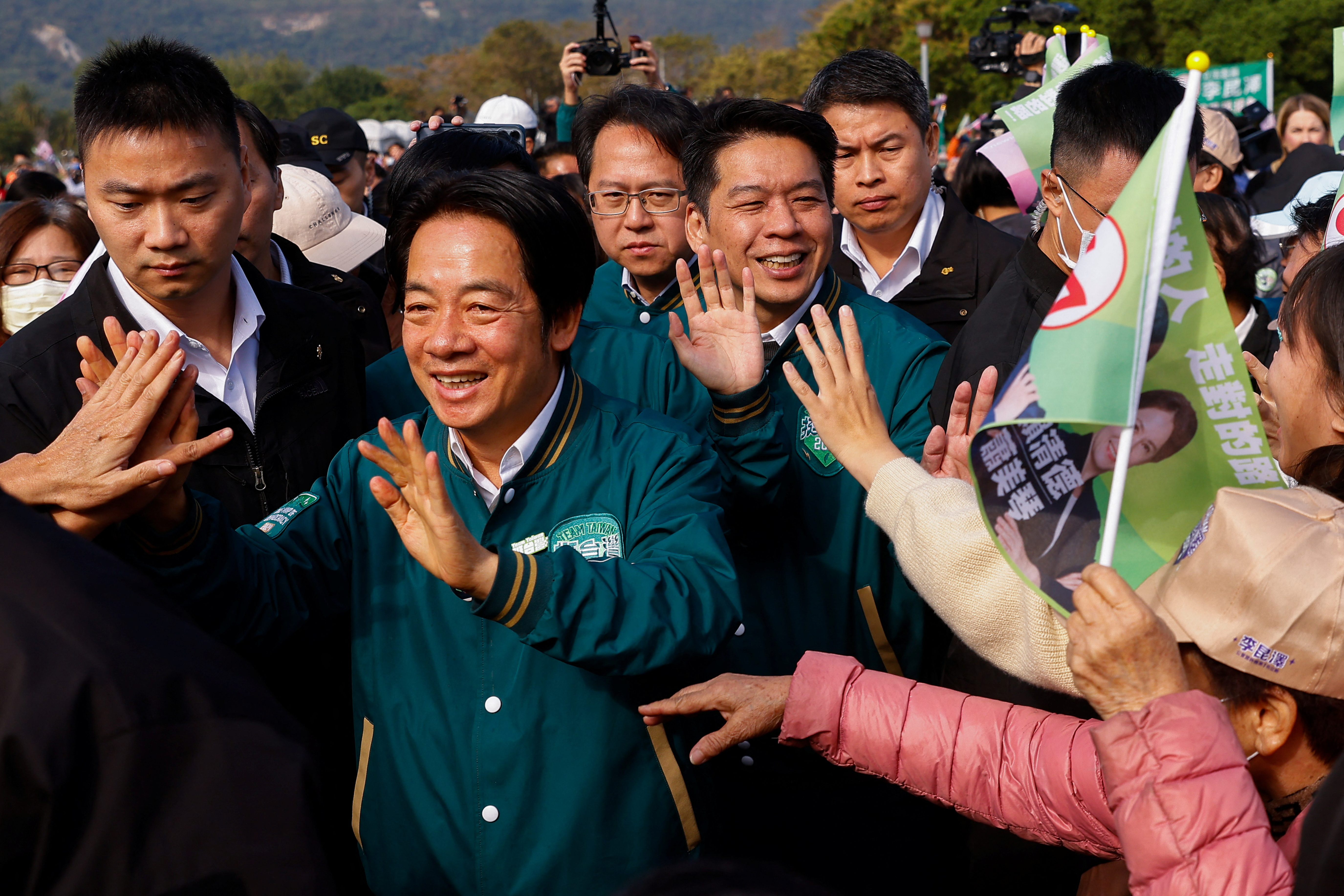China’s “reunification” with Taiwan is inevitable, President Xi Jinping said in his New Year’s address on Sunday, striking a stronger tone than he did last year with less than two weeks to go before the Chinese-claimed island elects a new leader.
Quick Read
- Xi Jinping’s New Year’s Address: Chinese President Xi Jinping emphasized in his New Year’s address that “reunification” with Taiwan is an inevitable historical event. His tone was stronger compared to his previous year’s speech.
- Upcoming Taiwan Elections: Taiwan, which China claims as its territory, is preparing for presidential and parliamentary elections on January 13, amid strained cross-strait relations and increasing military pressure from Beijing.
- China’s Stance on Taiwan: China views Taiwan as its sacred territory and has not ruled out force to achieve reunification, although Xi did not mention military action in his address.
- Xi’s Remarks on Taiwan: In his speech, Xi called for compatriots on both sides of the Taiwan Strait to work together for the rejuvenation of the Chinese nation. This statement reflects a shift from last year’s speech, which had a more conciliatory tone.
- China’s Opposition to Lai Ching-te: China has strongly opposed Lai Ching-te, the DPP’s presidential candidate and current Vice President of Taiwan, accusing him of being a separatist. A statement from China’s Taiwan Affairs Office criticized Lai’s remarks at a recent presidential debate, labeling them confrontational.
- Taiwan’s Political Stance: The current DPP-led government in Taiwan has been promoting a separate identity from China, which has caused tensions. Both Tsai Ing-wen and Lai Ching-te have expressed willingness for dialogue with China, but Beijing has rejected these overtures.
- Taiwan’s Democratic Process: The DPP asserts that Taiwan’s future should be decided by its people. Hou Yu-ih, Lai’s main election rival from the KMT, also supports this view. The KMT, traditionally favoring closer ties with China, distances itself from being pro-Beijing and has criticized Lai for supporting independence.
- Historical Context: Taiwan’s government, officially the Republic of China, relocated to the island after losing the civil war to the communists in 1949. This historical backdrop continues to influence the political dynamics between Taiwan and China.
The Associated Press has the story:
China’s Xi Jinping says the ‘Reunification’ with Taiwan is inevitable
Newswlooks- BEIJING, Dec 31 (Reuters)
China’s “reunification” with Taiwan is inevitable, President Xi Jinping said in his New Year’s address on Sunday, striking a stronger tone than he did last year with less than two weeks to go before the Chinese-claimed island elects a new leader.
The Jan. 13 presidential and parliamentary elections are happening at a time of fraught relations between Beijing and Taipei. China has been ramping up military pressure to assert its sovereignty claims over democratically governed Taiwan.

China considers Taiwan to be its “sacred territory” and has never renounced the use of force to bring it under Chinese control, though Xi made no mention of military threats in his speech carried on state television.
“The reunification of the motherland is a historical inevitability,” Xi said, though the official English translation of his remarks published by the Xinhua news agency used a more simple phrase: “China will surely be reunified”.
“Compatriots on both sides of the Taiwan Strait should be bound by a common sense of purpose and share in the glory of the rejuvenation of the Chinese nation,” he added. The official English translation wrote “all Chinese” rather than “compatriots”.

Last year, Xi said only that people on either side of the strait are “members of one and the same family” and that he hoped people on both sides will work together to “jointly foster lasting prosperity of the Chinese nation”.
China has taken particular exception to current Vice President Lai Ching-te, the presidential candidate for Taiwan’s ruling Democratic Party (DPP) and leading in opinion polls by varying margins, saying he is a dangerous separatist.
Responding late on Saturday to Lai’s comments at a live televised presidential debate earlier in the day, China’s Taiwan Affairs Office said Lai had “exposed his true face as a stubborn ‘worker for Taiwan independence’ and destroyer of peace across the Taiwan Strait”.
“His words were full of confrontational thinking,” spokesperson Chen Binhua said in a statement.

Since 2016 – when President Tsai Ing-wen took office – the DPP-led government has promoted separatism and is the “criminal mastermind” in obstructing exchanges across the strait and damaging the interests of Taiwan’s people, Chen said.
“As the leading figure of the DPP authorities and current DPP chairman, Lai Ching-te cannot escape his responsibility for this,” he added.
Tsai and Lai have repeatedly offered talks with China, but have been rebuffed.
The DPP says only Taiwan’s people can decide their future, as does Lai’s main opponent in the election, Hou Yu-ih from Taiwan’s largest opposition party the Kuomintang (KMT).
The KMT traditionally favours close ties with China but strongly denies being pro-Beijing. Hou has also denounced Lai as an independence supporter.
The defeated Republic of China government fled to Taiwan in 1949 after losing a civil war with Mao Zedong’s communists who founded the People’s Republic of China. The Republic of China remains Taiwan’s formal name.
Lai said on Saturday that the Republic of China and People’s Republic of China “are not subordinate to each other”, wording he and Tsai have used previously which has also riled Beijing.







